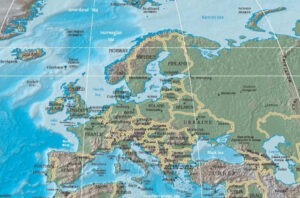Terms of this three-way merger that also includes Dracoon have not been disclosed.
The open-source Dropbox alternative, ownCloud, is folding into Kiteworks, a similar but proprietary Dropbox alternative focused on security. Also included in the merger is Dracoon, yet another proprietary Dropbox alternative. Both ownCloud and Dracoon are based in Germany, while Kiteworks is headquartered in Silicon Valley, although it also started life in Germany.
Although press releases were issued by all three entities on November 21, they were all short on details, with both Jonathan Yaron, Kiteworks’ chairperson and CEO, and Tobias Gerlinger, CEO and managing director at ownCloud, painting a picture indicating that everything will be exactly the same after the merger, only better — which might be easier said than done.
“Kiteworks is the ideal partner to realize our long-term vision of providing real-time content sharing and collaboration at scale and deliver enterprise-grade solutions,” Gerlinger said in a statement. “The importance of ownCloud’s open source in the enterprise and public-sector markets is embraced by both organizations.”
About that last observation, Kiteworks promised, “OwnCloud’s open-source position will remain the same after the merger.”
OwnCloud’s Open-Core Model
Although ownCloud sells itself as an open-source platform its business model is open-core, which means that the basic platform is open-source but most meaningful functionality comes by way of proprietary software that must be purchased separately. Its open-core model is one of the reasons why the platform is these days relatively unknown on this side of the Atlantic.
For about five years after its founding in 2011, ownCloud was a pretty big thing in the open-source world however, and for a while had offices not only in Germany but in the United States as well. That changed in 2015 when one of the project’s three co-founders, Frank Karlitschek, forked the project and replaced ownCloud’s proprietary functions with open-source replacements in a new project called Nextcloud, which has since received the lion’s share of attention from the press.
Since the split, both platforms seem to have had similar financial experiences, with both companies lately seeing annual revenues of about $2 million according to most accounts. By comparison, DRACOON’s revenues are nearly $13 million annually, and Kiteworks’ peak revenue was $33.3 million in 2022.
What the Merger Means for ownCloud
While this merger may well prove to be beneficial from a business viewpoint for those who have equity in ownCloud, users of the company’s legacy PHP-based ownCloud 10 software will likely see their platform swapped-out for Kiteworks’ platform in the near future. This is because ownCloud 10 is not only getting long-in-the-tooth, it’s also dependent on no-longer-supported PHP 7.4, which has put the platform’s developers in the position of having to maintain a hardened version of PHP 7.4. just so its platform can continue to be usable.
The same might not be true for ownCloud Infinite Scale, which was developed with help from CERN and released in 2021. It’s a complete rewrite of the platform in Go that takes a more modern architectural approach based-on microservices and cloud-native technologies.
Christine Hall has been a journalist since 1971. In 2001, she began writing a weekly consumer computer column and started covering Linux and FOSS in 2002 after making the switch to GNU/Linux. Follow her on Twitter: @BrideOfLinux








Hey,
I agree with most of the article, but I’m not sure where you got the number from for this statement:
> Since the split, both platforms seem to have had similar financial experiences, with both companies lately seeing annual revenues of about $2 million according to most accounts.
Looking at this, the financial situation couldn’t be more different:
Nextcloud: https://www.northdata.de/Nextcloud+GmbH,+Stuttgart/Amtsgericht+M%C3%BCnchen+HRB+227086
Owncloud: https://www.northdata.de/Owncloud+GmbH,+N%C3%BCrnberg/HRB+28050
But now after Owncloud was bought, this probably no longer matter.